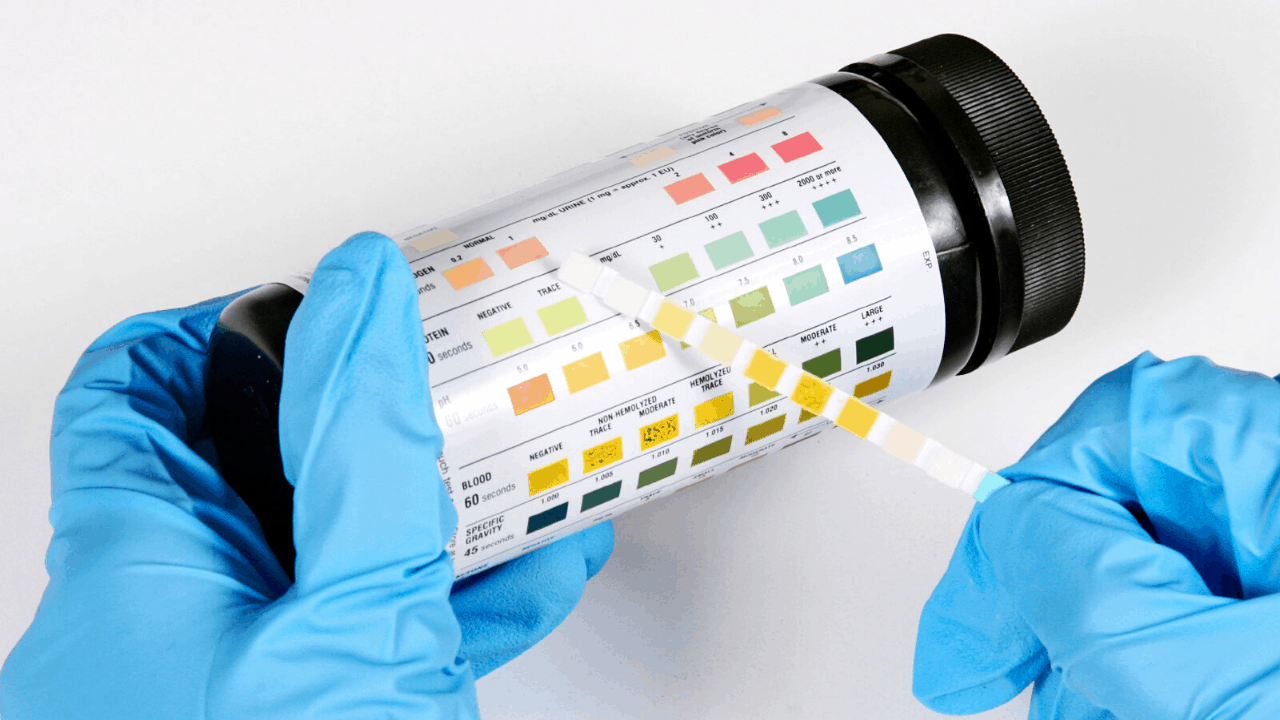Density, when used alone, means density, but in medicine, it refers to the proportion of a substance in the body, especially in urine tests. In the urinalysis, the general body functioning and health status of the patient is understood according to the density ratio. Let’s take a closer look at what urine density is, why it is measured, and what happens in case of its height and lowness, let’s see in all details.
When we go to the hospital feeling any discomfort, the doctor wants to see what goes wrong in our body with blood tests and similar tests. However, what we throw out as much as what is inside our body gives information about our health. For example, density measurement in urinalysis, how our body processes the fluids and similar substances we take in and it shows which wastes it can throw out in a healthy way.
While the word density means density when used alone, it indicates the rate at which a substance is excreted in the body, especially in urine tests. In other words, urine density is extremely important, so care should be taken in cases such as high and low. Bride what is urine density, why is it measured, let’s take a closer look and let’s see in all details what happens in case of height and low.
First of all, what is density?
The word meaning of the word density is the density of a substance, means the density of a substance. The more mass a substance has in a given volume, the higher the density ratio of that substance. Because of this meaning, density ratio is mentioned in many different fields.
What is density in medicine? Density in urinalysis:
Density in the field of medicine, which is the subject of our article, structures such as bone and urine expresses the density of a substance. In other words, at which point in our body the state of which substance is desired to be measured, a density ratio is mentioned there. The most common medical procedure we encounter with density is urinalysis.
Our body expels excess water, excess minarets and waste materials that are not processed by the body through urine. When your doctor asks you for a urinalysis due to many different reasons A specific gravity test is done on your urine. With this test, the density of different substances in the urine is measured and the density ratio obtained as a result of the measurement gives information about many health conditions, especially kidney function.
Why is urine density test done?
- In dehydration, which is the body’s state of being dehydrated
- In case of consumption of vaccine liquid
- In case of shock
- In the case of diabetes insipidus, known as pseudodiabetes
- In patients with kidney failure
- If a kidney infection is suspected
- If heart failure is suspected
- If urinary tract infection is suspected
- In hyponatremia, which is a state of low sodium in the blood
- In hypernatremia, which is a state of high sodium in the blood
This is generally the case when the patient is asked for a urine density test, that is, a urinalysis. Just like what happens inside our bodies Urinalysis may be requested in many different situations, since what we expel from our body is also informative about our health.
Urinalysis is a simple test and most of the time, the patient does not need any preliminary preparation. However density ratio according to the substance to be measured Your doctor may want you to stop some medications before the test, take a special medication, and not consume some foods that have the property of changing the color of urine, such as beets, blackberries, broad beans, and carrots.

What should be the ideal urine density range?
Although it varies from person to person or depending on the disease, The ideal urine density range is considered to be between 1002 and 1035. In general, the density ratio of dark colored urine is considered to be high and the density ratio of light colored urine is considered low, but an estimate should not be made by looking only at temporary conditions such as color and odor.
What does low urine density mean, what is the reason?
Except for special cases, cases where the person’s density ratio is less than 1002 is called low urine density. In this case the patient consumes a lot of fluids or he may be thirsty often. Some of the conditions that cause low urine density are as follows;
- Diabetes insipidus, also known as pseudodiabetes
- Kidney failure
- Drinking a lot of fluids due to excessive thirst
- Damage to tubular cells in the kidney

What does high urine density mean, what is the reason?
Except for special cases, the cases where the density ratio of the person is higher than 1035 is called high urine density. Since the patient does not consume much fluid The urine became darker and the density ratio increased. Some of the conditions that cause high urine density are as follows;
- dehydration, which is the body’s state of being dehydrated
- Conditions that cause dehydration, such as diarrhea and vomiting
- Heart failure
- state of shock
- Excess glucose in the urine
- Excess protein in the urine
- Excess white or red blood cells in the urine
- Excess bacteria in the urine
- Excess crystallized substance in the urine
What you need to do to keep the urine density ratio between normal values:

Make sure you drink enough fluids throughout the day:
Different drinks such as tea, coffee, fruit juice may quench your thirst, but none of them can replace the water the body needs. The amount of water the body needs 1 liter for every 25 kilos. In other words, a person weighing 75 kilograms should drink 3 liters of water during the day. Of course, we should never drink it all at once, we should meet the needs of our body by drinking water regularly throughout the day.
Limit alcohol and caffeine:
Alcoholic beverages and caffeinated coffee, tea, carbonated drinks and chocolate; while we are being processed even if we are not aware of it uses the water in our body And because they quench our thirst, we actually become dehydrated even if we don’t realize it. Therefore, limit the consumption of these products and drink water after consuming them.
Quit smoking:
One of the uncountable harms of smoking is that it negatively affects the bladder, that is, the bladder. never start smoking Or if you’re drinking, quit as soon as possible. You will find that even your excretory system works better.
Try not to be constipated:
Constipation, that is, inability to defecate, is also a problem that affects the urinary excretion system. Because You should consume plenty of fluids, eat vegetables and fruits, and consume fibrous foods. The healthy functioning of your intestinal system will have a positive effect even on your psychological state.
Exercise regularly:
Exercising regularly, not gaining weight, and controlling your weight are the best things you can do to keep your urine density ratio within the normal range. Besides during and after exercise Since you need to drink much more water, you will also meet your water needs.
Do not hold your urine:
Sometimes we need to hold our urine for hours due to hygienic conditions or psychological tensions, but Rest assured, this is the worst thing you can do to yourself. As urine builds up, it damages your entire excretory system, increasing the risk of infection and weakening your bladder muscles.
Wear cotton underwear:
If you wear tight or nylon fabric underwear, this area will always be will sweat and stay moist. Humidity means bacteria, and these bacteria increase the risk of infection. Avoid this risk by wearing loose cotton underwear. You will also be more comfortable.
What we encounter in urinalysis and gives information about our health. what is density, why is it measured, what does its height and low mean We answered frequently asked questions such as: What we describe is for informational purposes only. Do not forget that you should get the most accurate and specific information about urine density from a specialist physician, as in all health issues.
